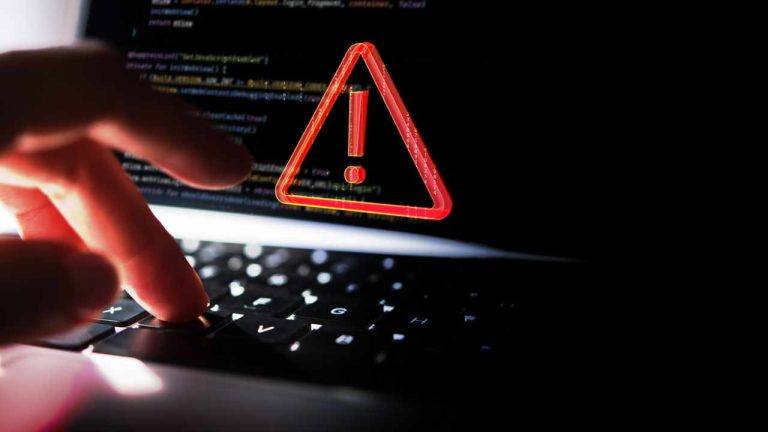
CoinDCX's Crypto Investors Protection Fund will enhance user security by allocating 2% of brokerage income annually to safeguard assets.
CoinDCX, one of India's leading cryptocurrency exchanges, has introduced the Crypto Investors Protection Fund (CIPF), aiming to establish a higher security standard within the Indian crypto market.
A press release shared with Cointelegraph states that the CIPF “is designed to compensate users for losses incurred in extremely rare scenarios.”
This user compensation includes “security breaches or other adverse events” and will feature an initial allocation of 50 crore rupees, worth around $595,800.
 Indian crypto exchange Wazirx has provided an update on the recent cyberattack resulting in the theft of over $230 million. Wazirx co-founder Nischal Shetty stated that the exchange is exploring various strategies to restore platform deposits, withdrawals, and trading. He assured users that Indian rupee (INR) funds are secure and that efforts to recover the […]
Indian crypto exchange Wazirx has provided an update on the recent cyberattack resulting in the theft of over $230 million. Wazirx co-founder Nischal Shetty stated that the exchange is exploring various strategies to restore platform deposits, withdrawals, and trading. He assured users that Indian rupee (INR) funds are secure and that efforts to recover the […] Indian cryptocurrency exchange Wazirx is working to resume withdrawals after a major security breach compromised a multisig wallet, resulting in the theft of over $230 million. The exchange has paused deposits, withdrawals, and trading, and launched a $23 million bounty program to recover the stolen assets. Within 24 hours, Wazirx received over 80 intents for […]
Indian cryptocurrency exchange Wazirx is working to resume withdrawals after a major security breach compromised a multisig wallet, resulting in the theft of over $230 million. The exchange has paused deposits, withdrawals, and trading, and launched a $23 million bounty program to recover the stolen assets. Within 24 hours, Wazirx received over 80 intents for […] Wazirx co-founder Nischal Shetty has updated the public on the $230 million security breach affecting the Indian crypto exchange. The Wazirx team is preparing a bounty program, engaging with expert teams to trace the stolen funds, and collaborating with other exchanges. “This is an unprecedented attack on one of the largest crypto exchanges in India. […]
Wazirx co-founder Nischal Shetty has updated the public on the $230 million security breach affecting the Indian crypto exchange. The Wazirx team is preparing a bounty program, engaging with expert teams to trace the stolen funds, and collaborating with other exchanges. “This is an unprecedented attack on one of the largest crypto exchanges in India. […] India’s Enforcement Directorate has declared its multi-year crackdown on the “E-Nugget” scam in Kolkata successful. The operation has resulted in cash and crypto seizures, along with the arrest of the mastermind. Investigations uncovered numerous dummy accounts and led to the freezing of digital assets at various crypto exchanges, which were then transferred to the ED’s […]
India’s Enforcement Directorate has declared its multi-year crackdown on the “E-Nugget” scam in Kolkata successful. The operation has resulted in cash and crypto seizures, along with the arrest of the mastermind. Investigations uncovered numerous dummy accounts and led to the freezing of digital assets at various crypto exchanges, which were then transferred to the ED’s […]
Indian crypto platforms could attain similar status as authorized dealers (similar to banks) under the guidelines of the Indian Central Bank RBI.
India is working on a crypto regulatory framework based on the joint recommendations of the International Monetary Fund (IMF) and the Financial Stability Board (FSB) that could result in legal legislation in the next 5-6 months. Siddharth Sogani, the CEO of CREBACO that has worked with government agencies and ministries, told Cointelegraph that the Indian government is working on a five-point crypto legislature with a global approach.
India recently concluded the G20 summit on a high with several key economic announcements, however, the most notable decision for the crypto community came in the form of IMF-FSB joint recommendations for crypto regulations that India and other G20 nations welcomed.
The IMF-FSB crypto recommendations call for regulating the crypto market rather than a blanket ban approach. The IMF-FSB recommendations are a set of regulatory guidelines/suggestions that the G20 countries can work on to formulate their independent yet collaborative crypto legislative.
Cointelegraph reached out to CREBACO, a blockchain analytic firm that offered consulting services to several G20 committees and nations to get insight into India's crypto approach. Sogani, the CEO of the firm told Cointelegraph that based on their meetings with the government officials, India is currently working on a five-point regulatory approach with a focus on global collaboration on certain aspects such as crypto taxation.
Talking about the five-point framework, Sogani noted that the government is focusing on:
Sogani noted that the world has realized that banning crypto is futile and several nations are moving towards a regulatory approach rather than a blanket ban. The likes of the United States and Europe have already got some specific crypto regulations in place while India took the taxation route. He added:
“Regulations are inevitable, this ecosystem has grown substantially strong without regulations. Just imagine how well would it grow with proper regulations in place. Also, regulated markets reduce the risks of scams and illicit activities.”
India has called for a global approach to crypto regulations for a while, with Prime Minister Narendra Modi reiterating the same during the recently concluded G20 summit. One of the executives at the Finance Ministry confirmed that they have taken the IMF-FSB crypto recommendations and will focus on formulating regulations around it in the coming months.
Related: India G20 confirms ‘active discussions’ around global crypto framework
The Finance Ministry executive said that IMF-FSB recommendations offer a good “framework to decide our own way forward. The foundation is ready, beyond that how much we want to go it is for us to decide in the coming months and then take a call."
The official also cleared that banning cryptocurrencies is no longer an option and noted that “If you want to ban it (cryptocurrency), go ahead and ban it. But if the rest of the countries are not banning it, it will be extremely difficult for one country to ban it.”
India currently doesn’t have any specific crypto regulations in place, though the country imposed a 30% tax on crypto gains in 2022. However, the joint crypto recommendations and the Finance Ministry’s assurance that a crypto framework could materialize into a formidable legislation in the coming few months is an optimistic sign for the crypto industry in the country.
Magazine: Crypto City guide to Sydney: More than just a ‘token’ bridge

One of the banking partners in the cross-border remittance service is also part of the government’s CBDC program.
India’s national payment network, the unified payments interface (UPI), is expanding its services beyond Indian borders, integrating with Singapore’s PayNow rapid payment system. Shaktikanta Das, governor of the Reserve Bank of India, and Ravi Menon, managing director of the Monetary Authority of Singapore, launched the facility through token transactions using the UPI-PayNow linkage.
The UPI-PayNow integration will allow users of the two nations to send money across borders quickly. It is possible to send or receive money from India using only a UPI-id, cellphone number or virtual payment address for money held in bank accounts or e-wallets. UPI’s instant real-time payment system helps to transfer cash immediately via a mobile interface between the two bank accounts.
UPI goes Global!
— MyGovIndia (@mygovindia) February 21, 2023
Since UPI was introduced as a payment system in India, it has revolutionised the lives of Indians, but in fact, India’s digital payment system is steadily becoming globally attractive & is being adopted by other countries.#indiafirst #IndiaSingaporeRelations pic.twitter.com/55sGh5bzbZ
Initially, the State Bank of India, Indian Overseas Bank, Indian Bank and ICICI Bank will facilitate outgoing remittances. Axis Bank and DBS Bank India will facilitate incoming remittances. DBS Bank and Liquid Group will provide the service to users in Singapore.
Related: The regulatory implications of India’s crypto transactions tax
ICICI Bank, a private sector bank in India is also part of the country's central bank digital currency program. India launched its CBDC pilot in two phases, one in November for the wholesale market and another in December for retail users. Since the trial's beginning on December 1st, 2022, the digital rupee pilot project has logged 770,000 transactions involving eight banks. Five cities are already participating in the experiment, with nine more cities possibly joining the trial soon.
Sathvik Vishwanath, CEO of Indian crypto exchange Unocoin, told Cointelegraph:
"This is a great value addition for India’s payment rails given that there is close to 30% population in Singapore are ex-pats and they send money to India once a month or a quarter. This integration eliminates friction reducing the processing time and costs.”
India’s digital payment infrastructure has scaled dramatically over the past few years and was popularised with the advent of Covid-19. While the government is sceptical about the larger crypto market, imposing a 30% tax on crypto gains, which subsequently forced major players to move out of the country. However, the government is keen on using blockchain tech for its CBDC program and the existing infrastructure could help in scaling its digital CBDC pilot as well.

The cryptocurrency exchange released its proof of reserves and proclaimed it to be India’s largest exchange both in volume and reserve funds.
After the paranoia and turmoil in the crypto industry caused by the FTX liquidity and bankruptcy scandal, major digital-asset service providers began publicizing their reserve funds.
The latest to join the proof of reserve trend is the Indian cryptocurrency exchange WazirX. It announced its act of transparency on Jan. 11, stating that:
“We are not only India’s largest crypto exchange by volume but also India’s largest crypto exchange by reserves.”
WazirX used Coin Gabbar, a third-party crypto asset tracking platform, to display its proof of reserves. According to the data, WazirX has roughly $285 million in total user assets held in Tether (USDT) at the time of writing.
According to the statement, 90% of user assets on WazirX are held in Binance-based wallets, with the remaining 10% stored in both hot and cold storage wallets. This amounts to roughly $256.5 million and $28.5 million, respectively.

The exchange said it chose Binance because of the “strict protocols and industry-leading technical measures” it uses to safeguard user funds on its platform. It also ensured users of a more than 1:1 ratio to protect user funds in case of liquidation.
Currently, over 19% of the exchange’s holdings are in Shiba Inu (SHIB), followed by 9.37% in Ether (ETH), 8.28% in Bitcoin (BTC) and 8.18% in DogeCoin (DOGE).
Related: Indian exchange WazirX follows Binance in delisting USDC
Despite being India’s largest exchange, WazirX was previously in hot water with local authorities due to money laundering charges. Funds on the exchange were frozen for just over one month during the investigation.
During this time, Binance publicly distanced itself from the exchange via a tweet from CEO Changpeng Zhao, who said Binance has no ownership of the exchange.
Additionally, Binance sided with local authorities during the investigation period by removing off-chain fund transfers with WazirX.
Binance was the first exchange to announce its proof of reserve scheme post-FTX turmoil, which then caused a domino of other exchanges to do the same.

The Indian crypto exchange was under investigation by local authorities for money laundering allegations which caused a freeze on over $8.1 million in bank account funds.
The Enforcement Directorate of India (ED) unfroze the bank accounts of the Indian crypto exchange WazirX, according to a statement from the exchange released on Sept. 12.
WazirX says it has been cooperating with local authorities during their anti-money laundering (AML) investigation by providing all of the necessary documents and details requested. The investigation targeted 16 fintech companies and instant loan apps, some of which solicited services from the exchange.
The exchange, however, said it has a no-tolerance stance towards any illegal activities on the platform. Additionally, it said that most of the targeted users in the ED investigation had already been flagged as suspicious by WazirX and blocked in 2020-2021.
WazirX told Cointelegraph the case is still under investigation but funds have been unfrozen due to no suspicious activity found, with “no further comment as of now.”
Funds in WazirX bank accounts had been frozen since Aug. 5, when the ED initially announced the investigation. The locked funds amounted to over $8.1 million in total.
ED searches the Director of WazirX Crypto-Currency Exchange & freezes its Bank assets worth Rs 64.67 Crore for assisting accused Instant Loan APP Companies in laundering of fraud money via purchase & transfer of virtual crypto assets.
— ED (@dir_ed) August 5, 2022
The ED’s accusations against WazirX claimed it had processed $130 million in transfers of funds to wallets under investigation for illegal activities. In light of the accusations, Binance, which once tried to acquire the company in 2019, distanced itself from the exchange via a public statement from CZ on Twitter.
Related: Binance sides with Indian regulators in WazirX fallout to cease support for off-chain transfers
Prior to the recent activity, the exchange was under ED investigation in 2021 for money laundering charges related to illegal online gambling proceeds tied to Chinese entities.
This time around, the crackdown on crypto exchanges in the country did not stop with WazirX. On Aug. 12, the ED froze a total of $46.4 million in Yellow Tune’s bank balances and balances from crypto exchange Flipvolt. The allegations were also money laundering related, and the company was accused of being a shell for Chinese entities.
Authorities said the funds would remain unavailable until the exchange can account for the criminal proceeds that it transferred out of the country.
These investigations began to pile up after the Indian government announced crushing new crypto tax regulations, which came into effect earlier this year.

GARI token was launched by Salman Khan, an A-list celebrity from Bollywood, with an aim to help Indian creators monetize their content over a short video application Chingari.
The domino effect of the 2022 bear market, which saw the downfall of numerous crypto ecosystems and tokens over several months, caught up to GARI token as it tanked over 83% in value in a matter of hours on June 4. While GARI Network brushed off the development as a “market event,” investors suspect a rug pull event.
GARI token was launched by Salman Khan, an A-list celebrity from Bollywood, with an aim to help Indian creators monetize their content over a short video application Chingari and its nonfungible token (NFT) marketplace. Data from Cointelegraph Markets Pro and Trading View show that GARI maintained a fairly steady value, averaging out to roughly $0.6 over the past six months amid a shaky market.

GARI’s bearish movement began on June 20, however, its long-standing support gave away on June 4 when the token crashed 83.29% to its all-time lowest trading value of $0.13. Soon after, investors started comparing the situation to the Terra (LUNA) and TerraUSD (UST) collapse, with one of the members calling the actor “Salman Kwon.”
#kucoin is the Big Whale who is dumping #Gari they are big investor. #kucoin gari price is $0.029 while other exchange have average $0.10 be careful from kucoin guys #KuCoin #SalmanKhan #gari #chingari #cryptocurrencies #scam pic.twitter.com/EeohogM4EY
— Ashish Gautam(Money Guru Digital) (@Moneygurudigi) July 4, 2022
Taking control of the situation, GARI Network conducted an internal evaluation and found no evident hacks that could topple the token’s prices, stating:
“So far this looks like a market event. We assure our community that ALL tokens are safe in the respective reserves.”
The team also revealed being in talks with Indian crypto exchanges to further assess the situation. Additionally, GARI network also planned to host an AMA session to clarify doubts and improve investor sentiment. However, the spectators were welcomed by a 404 error when they tried to join the session.
Link not working
— Ran NeuNer (@cryptomanran) July 5, 2022
While previously speaking to Cointelegraph, Chingari's spokesperson said that the GARI tokens are used to “connect and transact with their counterparties, place governance votes, and catalyze platform engagement and user base growth." Considering that not even the backing of an A-list celebrity from Bollywood could save GARI token from the wrath of the bear market, investors are advised to make informed investments upon due diligence, in other words, do your own research (DYOR).
GARI Network has not yet responded to Cointelegraph's request for comment.
Related: Indian crypto trading volumes slump following hefty taxes
Soon after India enforced its new crypto tax law, which requires investors to pay a 1% tax deduction at source (TDS) on every transaction, crypto exchanges reported a massive slump in trading volumes.
Indian Crypto exchange's trading volume have plunged by 90-95% , 3 months after new crypto laws became applicable.
— Crypto India (@CryptooIndia) July 4, 2022
Based on current volumes - Exchanges are only able to generate trading fee revenue of $1000 to $3000 Max.
Bitbns seems to be still doing well.
Tough times ahead. pic.twitter.com/KNDbea9BCn
CoinDCX, India’s first crypto unicorn reported a 90.9% decline in daily trading volumes while crypto exchange BitBNS witnessed a 37.4% drop.